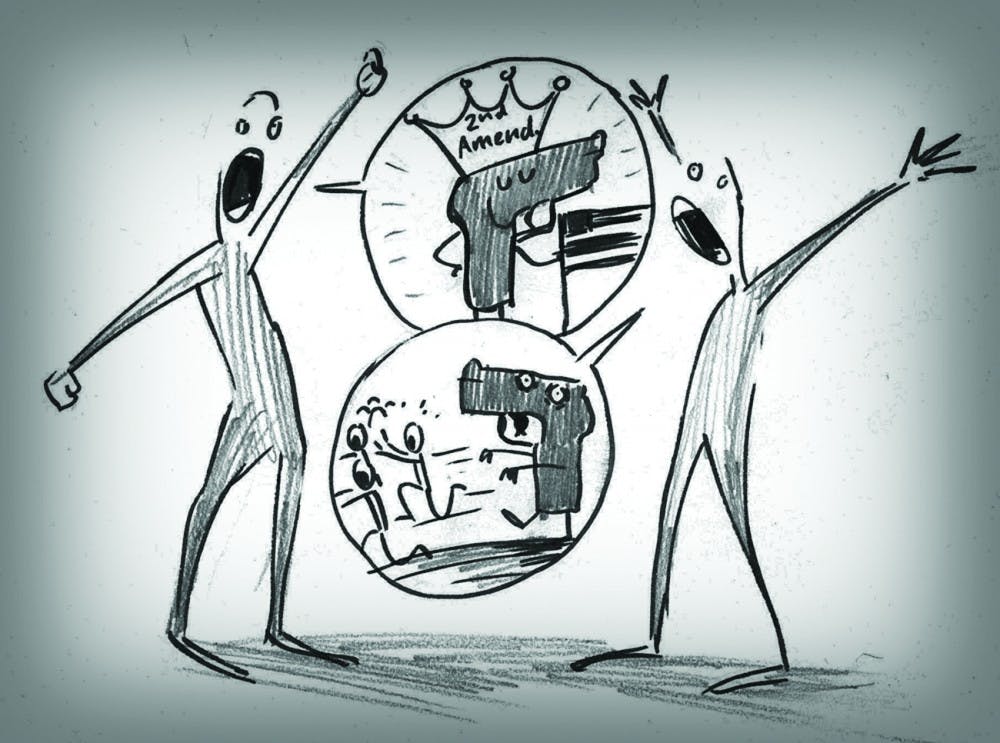The Second Amendment does not matter.
Trivial legal arguments claimed powers do not matter; only what should be done matters.
The theoretical argument for gun rights rests not in use, but in ownership.
A firearm is property. Everyone has the right to own something so long as the ownership of it does not infringe upon another’s rights.
No matter how “scary” a firearm looks, the mere ownership of a weapon does not harm anyone.
Ergo, there is no moral basis to restrict it.
Similarly, discard the drivel of “Well, you do not need guns.”
We appartently live in a free society.
This means that the burden to justify an action lies with the state.
No person needs to justify anything to anyone, so long as they are not harming anyone.
“You do not need gun” presumes that the individual is a slave requiring permission to act from his/her master.
We must then conclude that there exist no ethical or theoretical grounds for gun control. Unfortunately, many people are amoral.
Putting aside the fundamental problems of this outlook, understanding that implementing gun control makes you an evil person does not matter to many people.
Thus, we now fight them at their own game.
Statistics involving gun control desecrate the good name of empirical study. Correlation does not imply causation.
Ever.
As a note, meta-studies show no significant relationship, positive or negative, between gun control and violence on the whole.
Furthermore, these studies suffer from too much aggregation.
It is dishonest to compare national statistics of the U.S. to, say, Australia.
Violent crime and gun control data from Baltimore cannot be averaged with Shippensburg to give an accurate image of any correlation or effectiveness of gun laws, for doing so destroys the data’s context.
However, we can look at data involving, say, Canada, a smaller but demographically similar nation to the United States.
Canada represents a nation whose gun laws failed.
The recent abolition of its long-gun registry due to its ineffectiveness shows that legislators have no idea what they are doing.
Take three different firearms in Canada: The M-14, the AR-10 and the FN-FAL.
All of these rifles have similar rounds, similar velocities and similar range.
However, one is heavily regulated, one is legal to own and one is completely banned.
Why?
If you look at the stats, this discrepancy is ridiculous.
Ultimately, the only legal-practical differences between these weapons are cosmetic.
Finally, how do we convince criminals to follow a law?
Maybe passing a law making breaking the law illegal will work, right?
In Canada, 1 percent of guns used in a crime were registered long guns.
It criminalizes perfectly reasonable people, creates needless bureaucracy, bases itself upon tyrannical theory or cooked statistics, and is nothing more than people flailing irrationally because it makes them feel safe after unpreventable tragedy.
(Article supporting gun control can be found here)



The Slate welcomes thoughtful discussion on all of our stories, but please keep comments civil and on-topic. Read our full guidelines here.